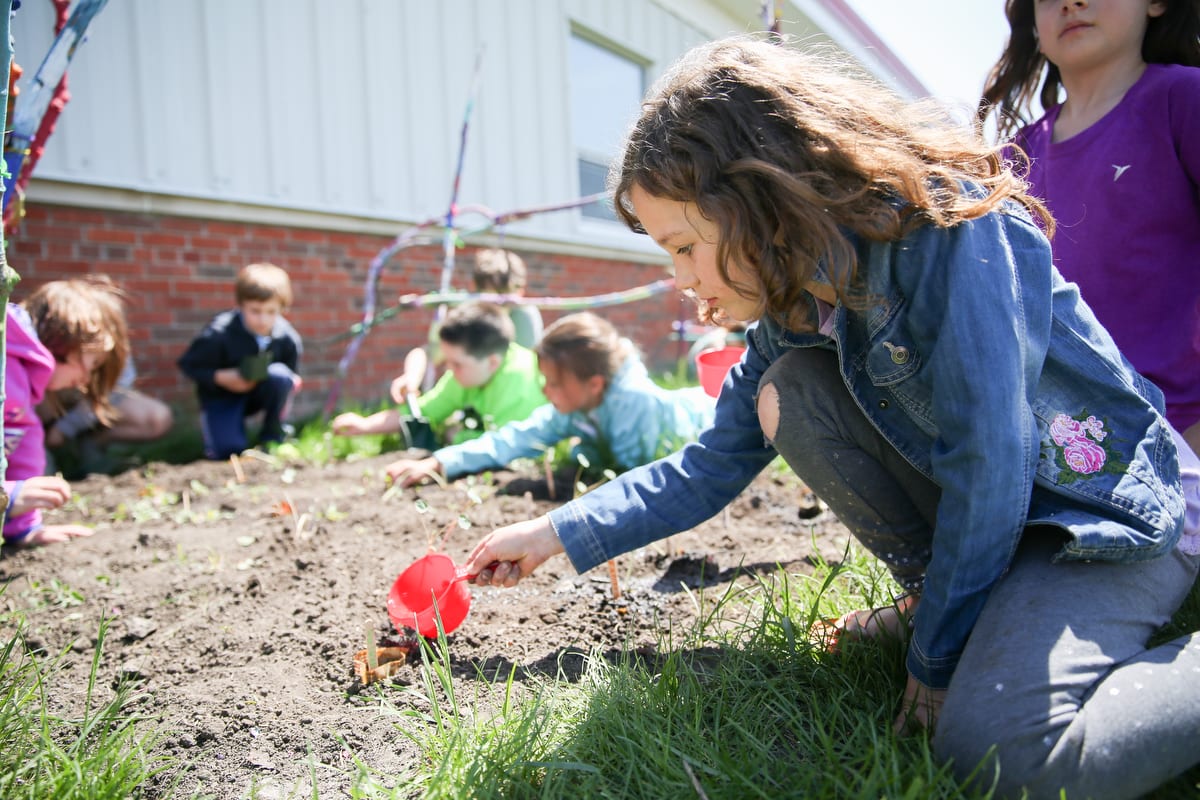THE IMPORTANCE OF CONNECTING TO NATURE
“The Importance of Connecting to Nature”, written by Tracey Gilmour for Ever Active Schools.
Originally published in Healthy Schools Alberta Magazine Winter 2018 edition. This article has been modified from its original format.
“IMAGINE A WORLD…
in which all children grow up with a deep understanding of the world around them. Where [health concerns] are reduced through nature play. Where anti-depressants and pharmaceuticals are prescribed less and nature prescribed more. Where children experience the joy of being in nature before they learn of its loss. Where they can lie in the grass on a hillside for hours and watch clouds become the faces of the future. Where every child and every adult has the human right to a connection with the natural world, and shares the responsibility to care for it.” -Richard Louv

Instinctively, we know time spent in nature is good for us. We know our fragile planet Earth provides many health and wellness benefits. After a long walk on an overwhelming day, we can feel the positive influence fresh air has on our mood. We can see the flush on our cheeks and the smiles on our faces. This is time well spent with mother nature. But what’s really happening? How does connecting with nature impact our mind and body? And why should we be encouraging our children to become the future stewards of our natural world? Here are just a few of the “side effects” from a regular connection with nature:
- Promotes physical healing and strengthens immune system
- Is linked to enhanced activity of cancer fighting cells
- Lowers blood pressure and helps mitigate heart disease
- Encourages people to be physically active
- Increases life expectancy and linked to faster recovery times
- Reduces feelings of anger, aggression, anxiety and depression
- Reduces stress and mental fatigue in the workplace
- Helps improve mood and stimulate coping skills
- Stimulates critical thinking and risk taking skills in children, leading to a more innovative workforce
- Is linked to the development of positive aspirations
- Encourages the development of responsible adults
- Is linked to better student academic achievement, leading to a better educated workforce
- Reduces negative symptoms of ADHD in children
- Stimulates cognitive and emotional development in children
- Unstructured play outdoors influences brain development
With so many benefits attained through regular time with nature in childhood, it makes sense that we would ask our younger generations to support the protection and conservation of our natural environments. Not to mention, we’ve all seen the impact lately of staying inside and lacking connection to the outside world.
Young people are the future. How they learn and develop their attitudes, characters and core beliefs will determine how they act and make decisions throughout their lives. The habits they form now, during a global pandemic, will impact the way they see the world. The ability of young people to make informed decisions about their relationship with nature has profound implications for both the local and global environment and our collective well-being. Contact is key: if kids learn, play and interact with nature, they will value and cherish it.
Providing opportunities for time in nature, whether for play or for learning, is not only essential for our current generation of children but also for those yet to come. While benefiting directly from nature play and learning, our children will also share in the responsibility to care for it. For further information on fostering environmental stewardship in a school setting, check out the University of Toronto’s handbook ‘Natural Curiosity: A Resource for Teachers’.
References
- Parks Canada Agency on behalf of the Canadian Parks Council Parks Canada. (2014.) “Connecting Canadians with Nature — An Investment in the Well-Being of our Citizens.” Ottawa, ON: Parks Canada.
- World Future Council. (2016, May). “Fostering the next generation of environmental stewards: Learning the Maryland way.“


